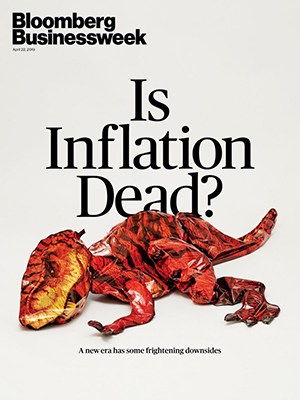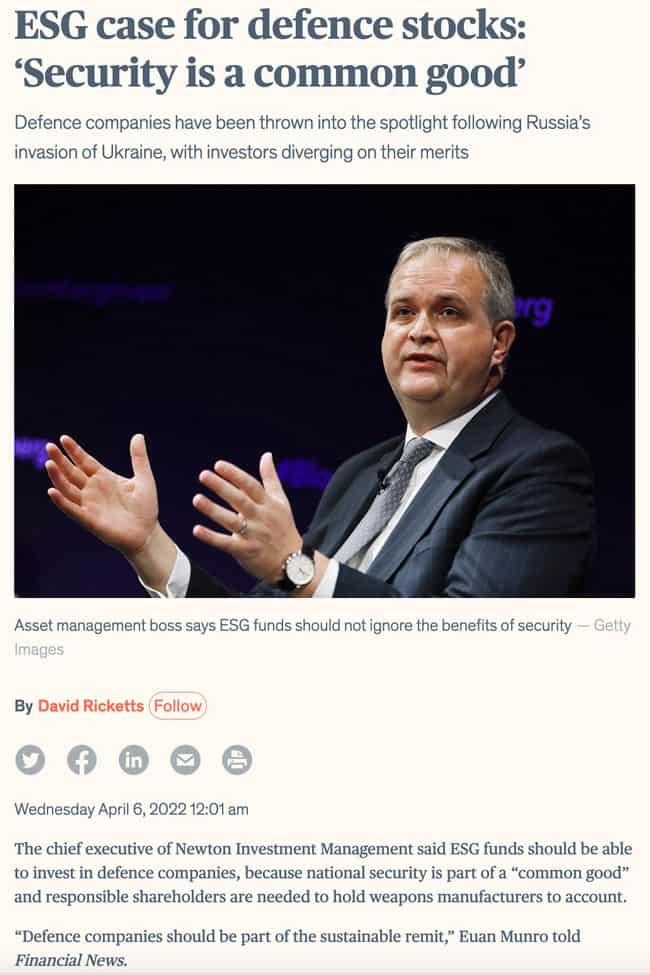"Ladies and gentlemen, I would like to speak to you about the news that broke 20 minutes ago. The European Union is going to implement restrictions on the movement of capital.
If you are transferring money between EU countries, you'll have to fill out an additional online form. It will be similar to coronavirus tracker forms, and possibly act as a precursor to actual transfer restrictions.
If you want to transfer money outside the EU, you'll have to apply online for permission. The EU is debating how much individuals can transfer outside the block each year. The measure is intended to protect social justice within the eurozone."
These were the opening sentences of my speech at the CEE Wealth Summit in Vienna on 5 May 2022, which I attended in my role as CEO of Sarnia Asset Management.
"The draft of a policy document was leaked in Brussels. Reuters just broke the story as an exclusive. The exchange rate of the euro versus the dollar has gone into freefall during the last 15 minutes. The EU leadership has called an emergency press conference for 5pm and instructed all European banks to freeze all international money transfers until next Monday."
I could see jaws dropping across the audience, made up primarily of 190 family offices from the Central and Eastern European region. People had put down their phones and starred at me – and I stared back.
"Okay, you can take a deep breath. This wasn't the news of today. However, it could be in one, three or five years. In my speech today, I will tell you why it could happen, and what you can do to protect your wealth and the future of your family."
Shocking the audience like that was a bit risqué, but it turned out a barnstorming success.
Capital controls affect investments on a broad level, and few people have access to the kind of conferences that I am lucky enough to attend occasionally – which is why I decided to share this summary with the readers of Undervalued-Shares.com.
A short primer on capital controls
I made up the introduction of my presentation to get everyone's attention. However, there WAS a piece of news that came out a few weeks ago and which hardly anyone in the finance industry would have noticed.
The International Monetary Fund made two very significant policy decisions:
- Nations can implement capital control measures pre-emptively.
- Capital controls can now be implemented for national or international security.
These decisions break with the IMF's past policies (see this 18 April 2022 article by the Brookings Institution for details). They could have huge ramifications on all of us in years to come. We all know what happens when you give politicians additional, discretionary power. Sooner or later, they will be tempted to use (or abuse) it.
"Capital controls" is an expression that hails from the 1970s. Capital controls are restrictions placed on the movement of capital. We thought they were dead, just as we were told inflation was dead. You might remember the infamous cover page of Bloomberg Businessweek from a few years ago which stated "Is Inflation Dead?" and depicted a deflated dinosaur.

I believe we need to prepare for capital controls to make a similar comeback, and possibly soon.
Is this idea something you would have ever given any thought to?
Have you ever asked yourself what would happen to your wealth if we saw a return to capital controls put in place by nations or international organisations?
When did you last speak to your financial advisors about the risk of capital controls?
Last week, I sat down with a high-calibre focus group of strategists and investors to discuss the concept of underappreciated risks and a potential "Plan B" for your investments. We agreed to keep the entire 3 ½ hour conversation off the record, but I am at liberty to share the group's no. 1 conclusion with you today.
Sooner or later, we are likely to see capital controls again.
Just to be clear, we had no preppers in our focus group. We don't hide in the basement with two years' worth of dry food.
However, we are also aware of the reality going on around us.
Just speak to anyone who had most of their personal wealth in Ukraine or in Russia. Ask them if they were fully prepared for the capital controls that have just hit them. How many will have lost a part of their wealth or even all of it because of what just happened within their financial system?
I am not a geopolitics expert, and I can't predict where the war in Ukraine is going to lead to precisely. Another CEE Wealth Summit participant said it might end in two weeks or it could go on another two years, and I broadly share this view. However, we already have certainty on some aspects. You'd have to be blind not to notice that we are moving towards an entirely new era. What is happening around us right now are the kind of shifts that generally happen only once in a lifetime, or maybe even once every few generations.
Be it the pandemic, or Ukraine, or the increasing wealth gap in the Western world. All of these developments are going to redraw the political landscape. They will have a lasting effect on how we live and what we need to do to protect our wealth.
The pandemic taught us that freedom of movement can no longer be taken for granted.
It gets worse. The war in Ukraine is very likely to get us Iron Curtain 2.0.
The economic fallout from all of this is going to be with us for years, possibly decades.
We've spent the last 20-30 years thinking that we will only ever see more globalisation. Suddenly, we can expect to see regional blocks, i.e. the opposite of globalisation. There'll be the so-called West, then we'll have Russia and China, and outside of that we'll have a large number of non-aligned countries. In a way, this is only a return to the distant past. It will have all sorts of effects - politically, financially, and economically.
If you take home one single point from what I am telling you today, please make it this one:
Free movement of capital, as we have known for most of our lives, is probably coming to an end.
With everything that's happening right now in terms of geopolitics, interest rates and national debts, the demographic trends in much of the West, the sky-high levels of taxation, and the politicisation of financial markets through central banks, capital controls are due for a comeback.
Capital controls. Think about it. Someone is going to tell you that you can no longer freely move your money around.
Not a problem, you might think?
If you are stuck with one currency, how are you going to diversify your investments? Do you want to bet your entire financial future on the euro? On the dollar?
Do you think these questions are not a big risk?
Our generation has been lucky, so far. We have just lived through a period that was an absolute exception in Western Europe:
- No hot wars for 70 years (if you ignore the conflicts in the former Yugoslavia).
- Mostly stable currencies for several generations.
- Generally rising prosperity.
To be clear, I am not a perpetual doomsayer, rather the opposite. But, I can see what is going on around me.
Even if there was only a 10% likelihood of borders shutting for capital flows, could you afford to ignore such a risk?
Personally, the one thing I really want to avoid for myself is to lose everything. Many will have lived through the transformative period of the Soviet Union collapsing. Many will remember what has happened to their grandparents. For their generation, the concept of losing everything was very real. It happened kind of regularly, usually every one or two generations.
The good news is that it's not that difficult to manage such risks.
Even more importantly, it's very cheap to hedge against such risks. Provided, of course, you plan ahead and don't let anyone place artificial constraints on you.
"Constraints" is the term that summarises the kind of risk you have from capital controls, but constraints go much further. Constraints in what you can do with your wealth is probably the single most important subject to keep in mind for the years to come. Unfortunately, it sounds terribly boring – but it's vital!
Have you ever thought about how many constraints you are under already?
- Do you feel you can't speak freely in public anymore? That's a constraint.
- Are you a German business owner who can't move to another country anymore because of exit taxes? That's a constraint.
- Do you feel you can't freely invest in any asset because of "ESG" principles? More constraints.

Private investors are slowed down by evermore constraints.
We'll see more such constraints in the years to come. The writing is on the wall.
Capital controls are one such constraint.
Another one could be the banning of entire asset classes. We've just seen how that works. Do you own some Russian stocks? Now you know how suddenly an entire asset class can be frozen.
Do you have Bitcoin? Wait for more governments to introduce tight controls on crypto, possibly even banning it, or at least trying to. Much of what we are seeing right now is merely a repeat of what many previous generations had experienced. In 1933, the US banned most forms of ownership of gold. Think it can't happen again? Wait for the first countries to ban crypto wallets, and to start checking laptops and smartphones for evidence of such wallets when you cross the border. The laws to do so have been in place for over 15 years already.
That all said, I don't want my entire life to revolve around worrying about the future. Instead, I'd like to:
- Exchange my ideas and plans with people who are in a similar situation – colleagues, friends, family members.
AND
- Make use of protection mechanisms where I can do so easily and cheaply.
As one of last week's focus group participants said: "Even if there is just a 10% risk of capital controls, it'd be irresponsible not to prepare for it."
By the way, our focus group placed the risk at about 30%.
How do you prepare for something like that? Some of it can be really easy. Diversify globally.
Many of you will remember Aristotle Onassis. He was the richest man in the world at his time, in the 1950s and 1960s. When Onassis was a child, his family had to flee from the Greek City of Smyrna because of the invasion by Turkey. They became penniless refugees and ended up at the other end of the world, in Argentina. When Onassis became wealthy, he reportedly had opened a bank account in every single country on Earth, stashing USD 1m in each of them. That was his "Plan B", to ensure that if he ever had to flee again, he'd land comfortably in his new home country. As a result, Onassis' granddaughter, Athina, allegedly inherited 217 bank accounts, including one in Iran. Admittedly, this is a bit extreme, but we do need to take such concepts serious again. Think of those investors who now have their personal fortune tied up in Ukraine or Russia.
Has your financial advisor spoken to you about the custody of your financial assets? Are you sure these assets are held in the safest possible place? Are you confident you can access all of these assets at all times and transfer them to wherever you want them to be? If you can't transfer these assets freely, does it affect their value?
60:40 portfolio splits?
Low interest rates?
The euro as a safe currency?
I don't know if these well-established recipes will continue to work.
There are a few alternatives, though. I myself live in the Channel Islands, a group of self-governing islands in the English Channel. In Continental Europe, few people have ever given any thought to Jersey and Guernsey, even though they are both long-established international financial centres.
This has changed recently. I am suddenly getting enquiries along the lines of "I already have wealth in the EU and in Switzerland, and now I want to diversify further. Should I open a bank account where you live? Can I even open a bank account there, and how?"
Some of these enquirers will have heard the following already:
- Guernsey has almost no national debt.
- No political parties.
- No unemployment.
- No crime.
- No EU membership.
- Instead, there's hundreds of years of political stability and stable property rights.
- A fierce sense of independence.
I have lived there since 2017, for two reasons:
- I love islands. I have spent the last 25 years living on islands in different places. Beautiful islands to be precise, including four years in the Galapagos Islands – which are definitely not a financial centre!
- I saw trouble coming our way, and I wanted to in a place where I don't have to accept unnecessary constraints.
What are some of the constraints that I want to avoid? So-called ESG is one.
I am old enough to know that moral values change, and sometimes suddenly. A year ago, defence stocks were an absolute no-go, because of "ESG". Now, they are suddenly considered potential ESG investments because defence is…. Well, DEFENCE!

No explanation needed.
As I said at the outset, I'd really like you to take one point home: consider the constraints you are under when protecting your wealth:
- Are you restricted in where you can invest? Can you free yourself from these constraints somehow?
- Are you fully aware of potential constraints, such as the custody risk if you are invested in the "wrong" jurisdiction in times of crisis? Do you even know where custody of your assets is located (not necessarily in the same country as your bank!)? Should you diversify further?
- When (not if, but WHEN) capital controls return to this world, are you sufficiently diversified to protect your wealth and your family's future?
If I was to make a single pitch to you, it wouldn't be for a product but for an idea. Prepare for ever more constraints on how you can invest your wealth. Prepare for capital controls, custody risks, and other technical pitfalls that seemed unimaginable until recently. Prepare for it now, so that you get the best possible protection.
Call me a "financial prepper" if you like.
I call myself a "Plan B optimist".
And I urge you to take the same approach.
Twitter share: all about the takeover and competition with Trump's SPAC (German-language video)
Social network Twitter has accepted a USD 44bn takeover offer by billionaire Elon Musk.
What made/makes Twitter such a good investment? Why is now the best time to sell the stock? Which role do other free speech networks such as Donald Trump's Truth Social play?
Paul Petzelberger of SdK Schutzgemeinschaft der Kapitalanleger e.V. and I discuss everything you need to know.
Twitter share: all about the takeover and competition with Trump's SPAC (German-language video)
Social network Twitter has accepted a USD 44bn takeover offer by billionaire Elon Musk.
What made/makes Twitter such a good investment? Why is now the best time to sell the stock? Which role do other free speech networks such as Donald Trump's Truth Social play?
Paul Petzelberger of SdK Schutzgemeinschaft der Kapitalanleger e.V. and I discuss everything you need to know.
Did you find this article useful and enjoyable? If you want to read my next articles right when they come out, please sign up to my email list.
Share this post:








